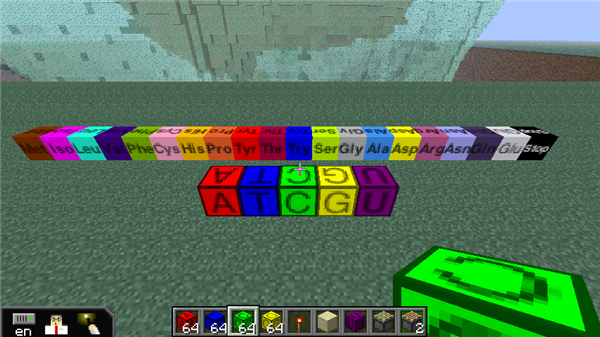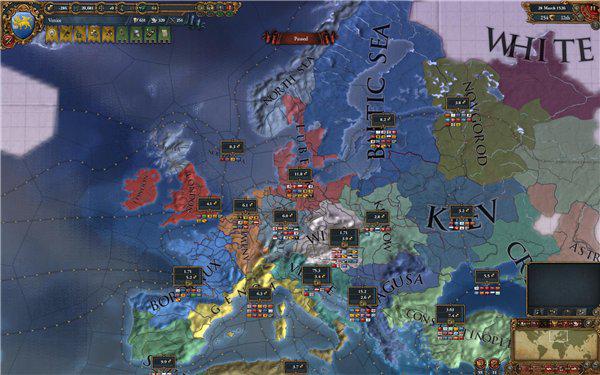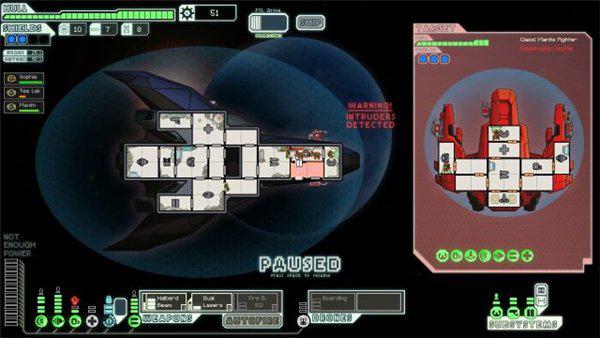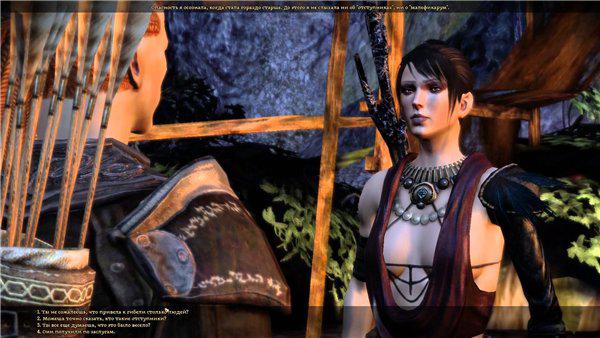Computer games, which can be useful in the educational process
 Bashny.Net
Bashny.Net
The topic of computer games in education for quite a long time cause much controversy for two main reasons: the damage to the eye and a large number cruelty and violence in the subjects games. After studying a lot of books and reports by contemporary scholars, highlight the main topics of discussion among teachers regarding the games and the educational process.

The types of educational games
Computer games are not clearly divided into genres. For example, a researcher Nicola Whitton, based on what the motive with which they were designed, divides games into 4 types:
1. Entertaining modified for training (Ex. MineCraftEDU );
2. Special education, from large developers;
3. The games that are created by the teachers and students.

The budgets of educational games, compared with the commercial, just miserable. And this is quite a strong effect on their appearance. Entertaining games compete for the attention of gamers, largely stimulates the development of the industry, but the training - often apply exclusively and specifically in schools. Questions of aesthetics educational games, even studied in a separate монографии, devoted exclusively to this topic.
Commercial games are usually quite complex and unpredictable. With regard to education, they, on the contrary, should be predictable and easy to their external form, the plot, the additional information does not distract from the educational material.
How to choose the right educational game? B>
Almost ideal, according to experts, are those games that students create their own. The fact is that in order to come up with something like this, it is necessary to study in detail the topic. The teacher in this case sends students to the sources of the information and prevents errors. But the idea and the whole process of the game - completely child creation. Learning material in such a way will be remembered much better than in the case where the child simply reads or hears.
What genres of games are most suitable for teaching purposes? John Kollik causes such examples: the best high school students will meet the strategy games in real time. As an example of successful educational games, he leads the strategy «Europa Universalis», as a successful platform for the study of history and geography.

Another interesting option for older students is that educational game in which you need to allocate limited resources. Here the example is a simulator of the spacecraft «FTL: Faster Than Light». And, of course, does not slow down the popularity of different MMORPG, which perform tasks of socialization.

Computer games and emotional intelligence
A unique feature to differentiate and understand the variety of emotions and feelings, using this information for its own purposes, is called "emotional intelligence»
.
The emotional state of the person is very affects what actions it carries out. The games also worked out different variations for cases where the player can experience complex emotions. Some researchers in this context, allocate them a key component as « Crucible experience i>». It is a variety of stressful situations, people who lived through personally grow. Through games you can relive the important moments and unpleasant circumstances.
There are other options when they become students for a perfect illustration of the moral dilemmas that exist in the real world. It is mainly a question of situations where there is a choice between what a person must do, and in order to break the rules for the benefit. Classic game based on the dilemmas and choices can be called «Dragon Age: Origins»

Computer games and the theory of pedagogy
Of course, computer games can not be called this pedagogy. But even in the world's most popular commercial games you can find something in common with the theories of learning. This theme is explored Corporation Schoolnet , promote the development of modern developments for education. Representatives of the organization correlate with educational computer games cycle of the bulb. When a player can not pass a particular test, he thinks about the cause of the failure, then planning the steps that need to be committed to winning. As a result, the gamer samosilno reviews the appropriateness of the choice made or falsity of their assumptions.
Something similar occurs in the fission of games on simple and complex levels. Initially, the game includes a number of simple tasks with more information. Once, when a person is fully acquainted with its rules, he was invited to become more independent and savvy to successfully progress through the levels more difficult. Thus, computer games motivate a person to take responsibility for self-study.
Source: geektimes.ru/company/shkolnaya_karta/blog/259914/

The types of educational games
Computer games are not clearly divided into genres. For example, a researcher Nicola Whitton, based on what the motive with which they were designed, divides games into 4 types:
1. Entertaining modified for training (Ex. MineCraftEDU );
2. Special education, from large developers;
3. The games that are created by the teachers and students.

The budgets of educational games, compared with the commercial, just miserable. And this is quite a strong effect on their appearance. Entertaining games compete for the attention of gamers, largely stimulates the development of the industry, but the training - often apply exclusively and specifically in schools. Questions of aesthetics educational games, even studied in a separate монографии, devoted exclusively to this topic.
Commercial games are usually quite complex and unpredictable. With regard to education, they, on the contrary, should be predictable and easy to their external form, the plot, the additional information does not distract from the educational material.
How to choose the right educational game? B>
Almost ideal, according to experts, are those games that students create their own. The fact is that in order to come up with something like this, it is necessary to study in detail the topic. The teacher in this case sends students to the sources of the information and prevents errors. But the idea and the whole process of the game - completely child creation. Learning material in such a way will be remembered much better than in the case where the child simply reads or hears.
What genres of games are most suitable for teaching purposes? John Kollik causes such examples: the best high school students will meet the strategy games in real time. As an example of successful educational games, he leads the strategy «Europa Universalis», as a successful platform for the study of history and geography.

Another interesting option for older students is that educational game in which you need to allocate limited resources. Here the example is a simulator of the spacecraft «FTL: Faster Than Light». And, of course, does not slow down the popularity of different MMORPG, which perform tasks of socialization.

Computer games and emotional intelligence
A unique feature to differentiate and understand the variety of emotions and feelings, using this information for its own purposes, is called "emotional intelligence»
.
The emotional state of the person is very affects what actions it carries out. The games also worked out different variations for cases where the player can experience complex emotions. Some researchers in this context, allocate them a key component as « Crucible experience i>». It is a variety of stressful situations, people who lived through personally grow. Through games you can relive the important moments and unpleasant circumstances.
There are other options when they become students for a perfect illustration of the moral dilemmas that exist in the real world. It is mainly a question of situations where there is a choice between what a person must do, and in order to break the rules for the benefit. Classic game based on the dilemmas and choices can be called «Dragon Age: Origins»

Computer games and the theory of pedagogy
Of course, computer games can not be called this pedagogy. But even in the world's most popular commercial games you can find something in common with the theories of learning. This theme is explored Corporation Schoolnet , promote the development of modern developments for education. Representatives of the organization correlate with educational computer games cycle of the bulb. When a player can not pass a particular test, he thinks about the cause of the failure, then planning the steps that need to be committed to winning. As a result, the gamer samosilno reviews the appropriateness of the choice made or falsity of their assumptions.
Something similar occurs in the fission of games on simple and complex levels. Initially, the game includes a number of simple tasks with more information. Once, when a person is fully acquainted with its rules, he was invited to become more independent and savvy to successfully progress through the levels more difficult. Thus, computer games motivate a person to take responsibility for self-study.
Source: geektimes.ru/company/shkolnaya_karta/blog/259914/
Tags
See also
Gadgets that you wanted to take a vacation
10 ways to use the forces of nature that can save mankind
10 indoor plants that can kill a man! Check whether you have these.
10 indoor plants that can kill a person
We use traditional medicine wisely: 8 cold remedies, which can be dangerous.
Products that can spoil the mood
If you Wake up at night at this time, then you may have problems
Useful properties of nuts
Atavism and rudiments
Facts about human sacrifice

















